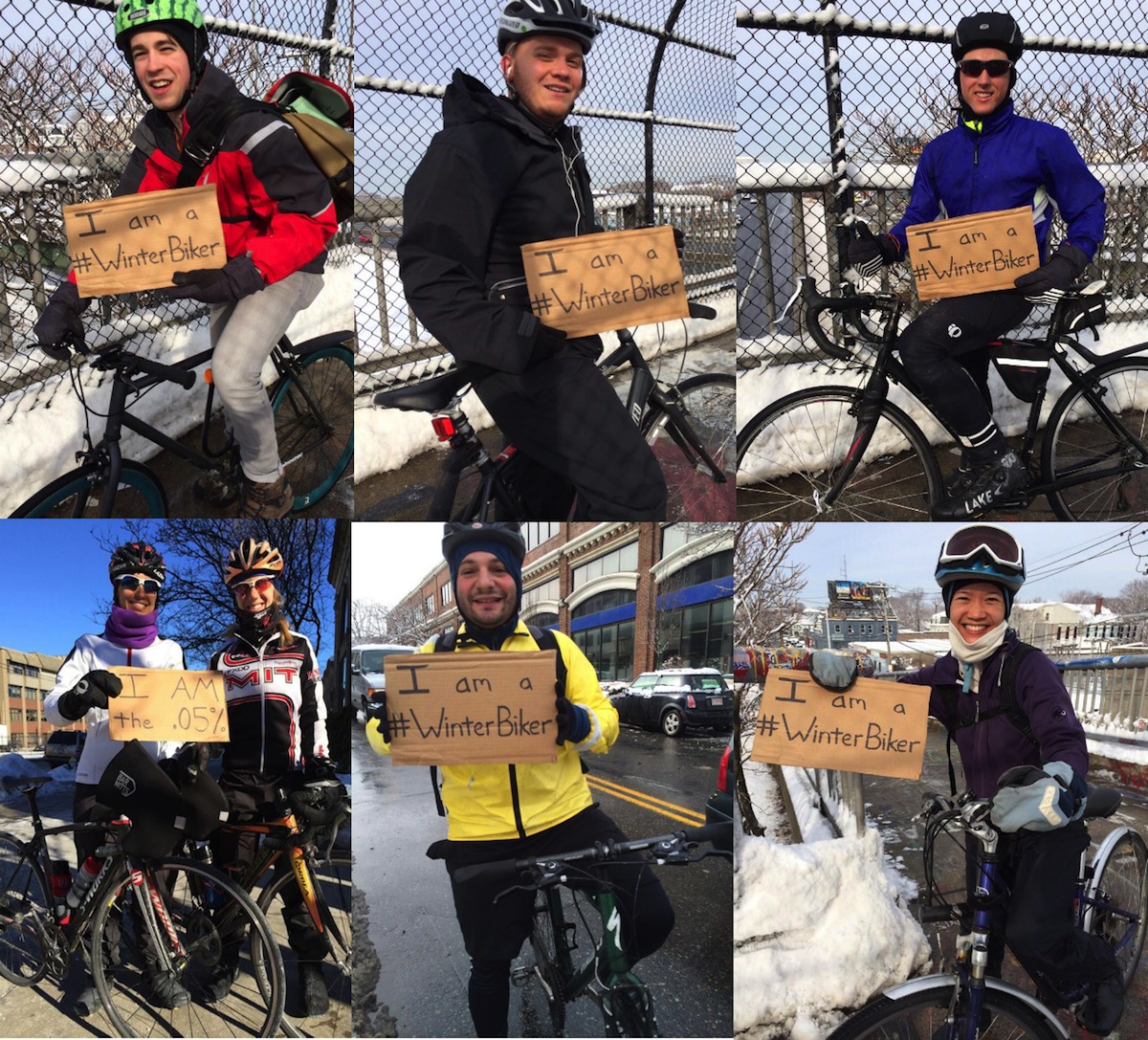Cyclists Claim Another Win in Push For Improved Snow Removal Along Pathways

Photos provided by Allston-Brighton Bikes
A little Twitter badgering can go a long way.
After bombarding the Department of Conservation and Recreation with a social media campaign calling for cleared bike paths throughout the city, cyclists said they were able to secure a meeting with state officials to talk about how snow removal efforts can vastly improve in Boston.
“It’s very encouraging that they are going to sit down with us and listen, when at first their first response was to dismiss a citizen’s complaint. Now it seems to be an open dialogue so we can discuss the policy, which may very well be broken,” said Galen Mook, an organizer behind Allston-Brighton Bikes. Mook helped kick off the social media blitz this week, which brought attention to the snow-covered bike trails with the help of members from the Boston Cyclists Union’s Organizing Group.
The online push for a conversation with DCR, which featured photos of cyclists that rely on riding their bikes during their commute every day of the year—regardless of the snowy weather—was prompted by a series of controversial emails sent to Universal Hub last weekend.
The emails detailed a conversation between a DCR employee and cyclist that asked the agency to ramp up its snow removal process in the days following a severe storm, and clear certain pathways down to the pavement.
DCR officials became agitated by the correspondence, and told the cyclist they were “tired” of the their team wasting valuable time addressing the “less than .05 percent” of all riders who choose to bike after a snow and ice event. “Sometimes during winter in Boston you can safely bike, and I do it when it is dry and safe. This is not one of those winters! We should not spend time debating cyclists with poor judgement [sic] and unrealistic expectations,” the email said. “If someone is completely depending on a bike for year-round transportation, they are living in the wrong city.”
Thrown aback by the claim that only a small percentage of cyclists ride bikes in Boston when it snows, several local bike organizations, including Mook’s, Southie Rides, and the Boston Cyclists Union, began tweeting photos of riders holding signs that read, “I am the .05%,” and “I am a #WinterBiker.” On Monday and Tuesday, as snow once again hit the ground, dozens of photos and messages flooded DCR’s Twitter feed as more and more riders tried to stress the importance of snow removal on paths like the Southwest Corridor in Jamaica Plain.
“They dismissed an entire community of people that ride all year. They control the paths that make it possible for people to ride. If we didn’t have those paths, Boston wouldn’t have much of a bike culture,” said Pete Stidman, executive director of the Cyclists Union. “Our goal with this campaign was to get the DCR—instead of advising people to use a different kind of transportation—to really partner with us in making sure that the paths that serve the commuters are treated as a higher priority and treated in the best way possible.”
MassBike also got involved and wrote a letter to DCR asking them to host a meeting with “… a wide range of groups encompassing the bicycle, pedestrian, and parks advocacy communities.” The letter quickly led to a “productive conversation” between MassBike and DCR’s director, and the promise that they would sit down with community members and hash out the pathway problems.
A spokesman from the DCR told Boston that convening a meeting with the city’s cycling community regarding DCR snow removal “performance standards” was a “great idea.” They said DCR would be working with MassBike and other organizations over the coming days to set up a date and time to get together. The agency’s removal policies haven’t been updated since 2006.
“This is a very welcome step toward better aligning the needs of people who ride bikes for transportation with DCR policy,” according to MassBike Executive Director Dave Watson.
Mook agreed. “We know they are listening, and I think it’s time to shift the conversation. We spent two days throwing words at them, and it worked. We are glad we had the chance to light the fire as catalysts for this, and that they are willing to listen.”
Further details about the exact meeting date and location will be announced soon. This is the second time in as many weeks that cyclists used group protests and community organizing to get the state to change their plans.


